Share
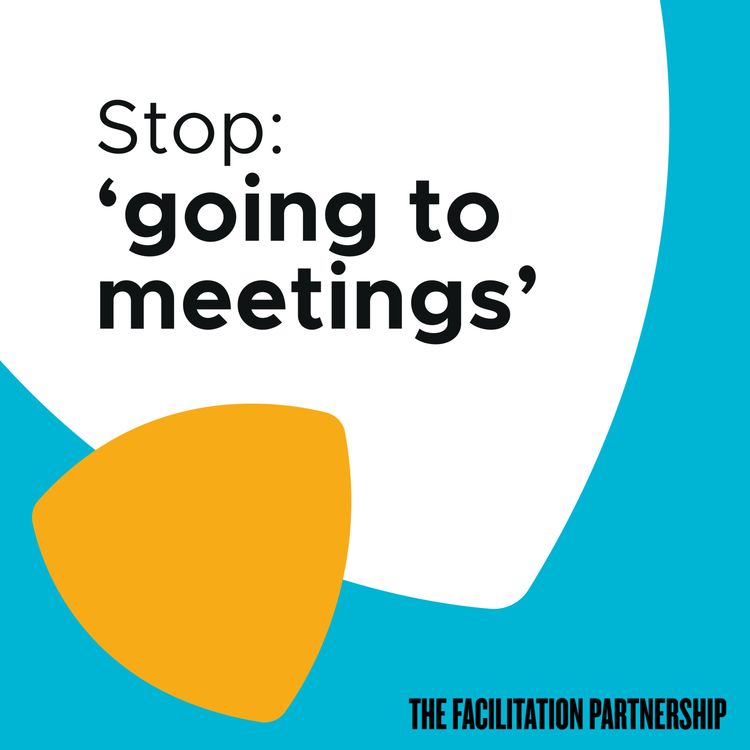
Stop: 'going to meetings'
Through the screen: online meetings
They’re not ‘virtual’ they actually exist. In this first episode, Helen Chapman and Amy Webb discuss the idea that you can break through and make online meetings brilliant, engaging and valuable; even those that span geographic time zones. When you think about it, humans and their behaviour are at the heart of every meeting, online or not, and it’s human behaviour that’s struggling to keep up.
This warm and open conversation evolves to cover online meetings, working from home, the emergence of tech platforms, playing jazz and hybrid meetings.
Email us here - hello@thefacilitationpartnership.com
Follow us on Twitter, Instagram and LinkedIn
Cool stuff links:
BBC News - No full-time return to the office for over a million
Microsoft - Research Proves Your Brain Needs Breaks
Online tools: Zoom, Microsoft Teams, Skype, Miro, Mural, Mentimeter
More episodes
View all episodes
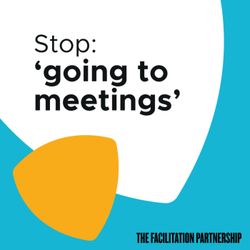
2. Unstable meetings and wandering minds
34:31||Season 1, Ep. 2If you have a purposeful agenda, you’ve booked a meeting space and have the right group of attendees, you’ve probably got a good cornerstone for your meeting. This podcast discusses the problems that can arise when things happen that are out of your control. Even in a short, one-hour meeting there are many moving parts: time, energy and understanding, to name just a few. Add to that, the unpredictable nature of the human mind and before you know it, the meeting turns out to be nothing like you planned. This candid and open conversation with Helen Chapman and Amy Webb expands on what to do with instability, how to adjust the reins to apply more control or undo the laces a little to allow focussed flexibility in.Email us here - hello@thefacilitationpartnership.comFollow us on Twitter, Instagram and LinkedInCool stuff links:People Etcetera by Elma Mitchell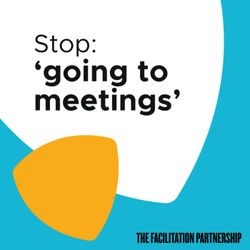
3. Working visually in meetings
39:16||Season 1, Ep. 3Visual note-taking in meetings is nothing new. For decades, skilled people have used the language of shorthand to create a record of the things being discussed and agreed in meetings.Today, while shorthand is still very valuable for many, there are more ways to work visually in meetings. The open conversation between Helen Chapman and Amy Webb explores new and modern methods of taking notes and describes the compelling value in doing so.Email us here - hello@thefacilitationpartnership.comFollow us on Twitter, Instagram and LinkedIn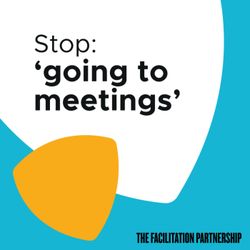
4. Labels and things
32:41||Season 1, Ep. 4When did you last put a label on someone in a meeting? For instance, ‘She’s an extrovert and never stops talking’ or ‘He’s the joker who laughs-off tricky situations’. Labels come from mostly unconscious judgement which then shows itself in behaviour. Do you cut some people short, while having plenty of time for others? Perhaps you switch off when the person who contributes most begins to speak? Or maybe you listen intently when the most senior person in the room has something to say? This podcast explores our human tendency to judge and in their conversation, Helen Chapman and Amy Webb explore doing something different to get the most from others in meetings.Email us here - hello@thefacilitationpartnership.comFollow us on Twitter, Instagram and LinkedInCool stuff links:• The Gifts of Imperfection, Brene Brown• Myers Briggs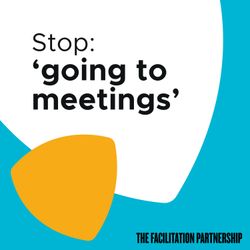
5. A quest for understanding
32:16||Season 1, Ep. 5“Seek first to understand and then aim to be understood” Stephen Covey The content or subject matter in a meeting, such as data, facts, information and insights is the equivalent of sharing ‘knowledge currency’. In this podcast chat with Helen Chapman and Amy Webb, we observe how we often fall short of reaching the true value potential of information exchange. Even the sexiest PowerPoint deck can fall flat. The conversation covers how sharing a deck is usually a one-way process of presenter to listener. PowerPoint is a great and trusted friend, but has its place and is limited when it comes to true knowledge sharing and understanding, even if it is accompanied by a Q&A.Email us here - hello@thefacilitationpartnership.comFollow us on Twitter, Instagram and LinkedIn